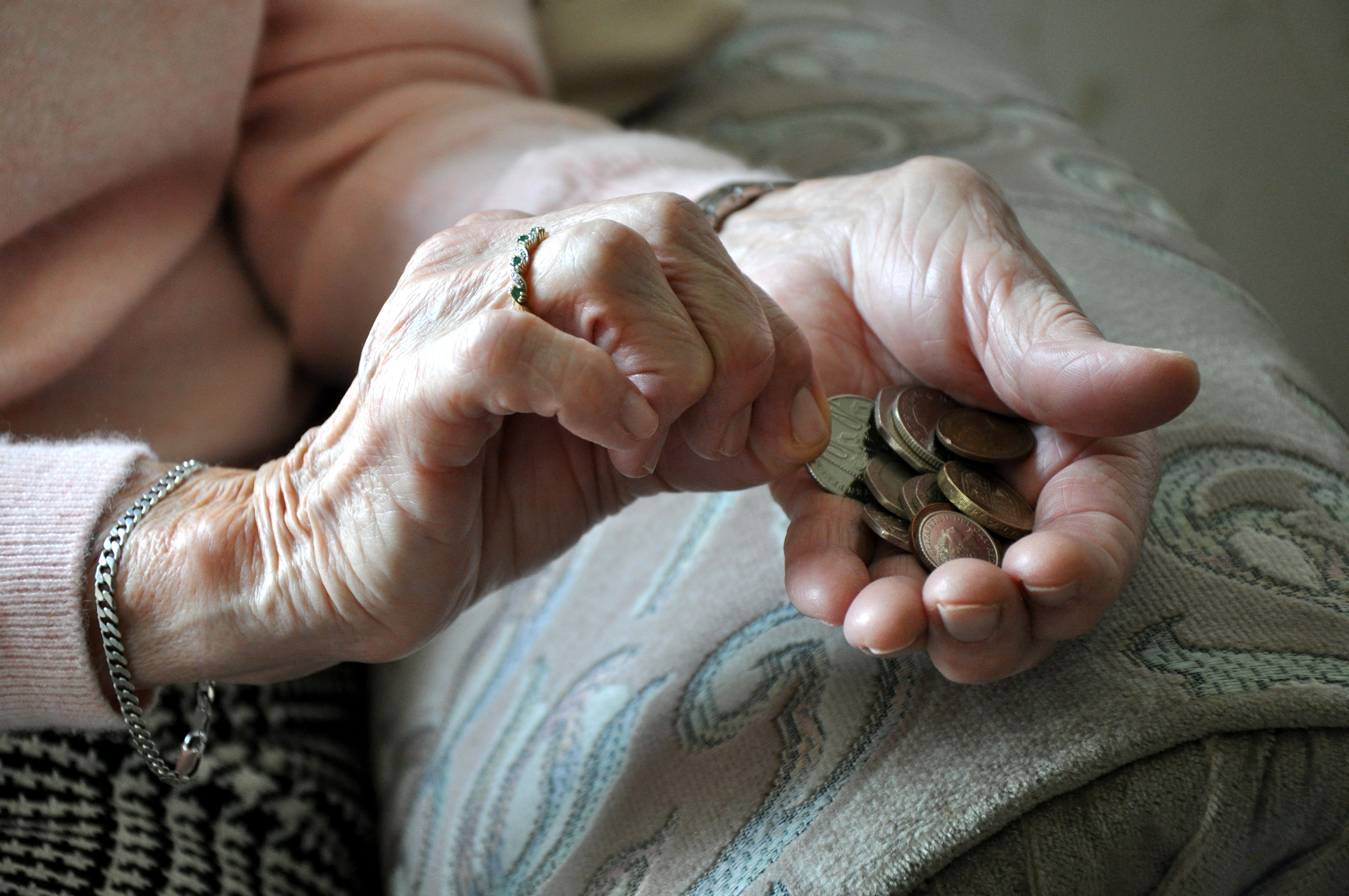- Money
Many people are already thought to be heading for a tough retirement financially
Vicky ShawMonday 24 November 2025 14:48 GMTComments
 CloseLabour minister apologises for speculation around budget
CloseLabour minister apologises for speculation around budget
Sign up to our free money newsletter for investment analysis and expert advice to help you build wealth
Sign up to our free money email for help building your wealth
Sign up to our free money email for help building your wealth
 Email*SIGN UP
Email*SIGN UPI would like to be emailed about offers, events and updates from The Independent. Read our Privacy notice
Reports indicate that Wednesday’s Budget may include a significant tax overhaul targeting salary sacrifice schemes, prompting fears that some people’s retirement savings could be jeopardised.
Here we take a look at how salary sacrifice schemes for pensions work and what could happen in Rachel Reeves’ Budget.
What are salary sacrifice schemes?
Salary sacrifice schemes permit individuals to exchange a portion of their earnings for an employer-provided benefit.
Often integrated into pension plans, this offers a tax-efficient route for workers to enhance their retirement savings.
When contributing this way, the employer deposits the entire sum – including their own contribution – directly into the employee’s pension fund.
What have reports suggested?
 open image in galleryMany people are already thought to be heading for a tough retirement financially
open image in galleryMany people are already thought to be heading for a tough retirement financiallyThere have been reports of a potential cap for people sacrificing their salary while still receiving the tax benefit at £2,000 a year, although some reports have also suggested that restrictions could go further.
What are the benefits of salary sacrifice schemes?
Salary sacrifice enables people to maintain their take-home pay, as people end up paying lower national insurance (NI) contributions.
There are also NI advantages for employers, helping them to offer more generous workplace benefits.
Are there any downsides for pension savers from using salary sacrifice?
A lower salary on paper might affect some borrowing applications, such as for mortgages.
However, employers can maintain a “reference salary,” which may be considered.
What could paring back salary sacrifice schemes mean for people and businesses?
 open image in galleryPensions industry bodies have been urging Chancellor Rachel Reeves not to curb salary sacrifice schemes (Leon Neal/PA)
open image in galleryPensions industry bodies have been urging Chancellor Rachel Reeves not to curb salary sacrifice schemes (Leon Neal/PA)Reducing the use of the schemes would mean more Government revenue, with some reports suggesting between £2 billion to £4 billion could potentially be raised, depending on how salary sacrifice was curbed.
But the Association of British Insurers (ABI) and major pensions providers have been urging Chancellor Rachel Reeves not take such a step, pointing out that the next generation of retirees are already at risk of being poorer than the current pensioner population.
Get a free fractional share worth up to £100.Capital at risk.
Terms and conditions apply.
Go to websiteADVERTISEMENT
Get a free fractional share worth up to £100.Capital at risk.
Terms and conditions apply.
Go to websiteADVERTISEMENT
Pensions industry bodies have warned that it could mean people and employers cutting back on the amounts going into pensions, storing up problems for pension savers and putting more cost pressures on businesses.
The ABI and the Reward and Employee Benefits Association (REBA) have warned that such a step would place additional strain on businesses and push millions of people into poorer retirements.
Yvonne Braun, director of policy, long-term savings at the ABI, said on Saturday: “The industry has long-warned that we’re ‘sleep-walking’ into a retirement crisis.
“If the Government goes ahead with suggestions to cap salary sacrifice, then we’re no longer sleep-walking, we’re speed-walking.”
What issues already exist with people’s incomes and pension saving?
 open image in galleryAlthough automatic enrolment has brought millions of people into pension saving, there are fears that too many workers are not saving enough to give themselves a comfortable retirement (Getty/iStock)
open image in galleryAlthough automatic enrolment has brought millions of people into pension saving, there are fears that too many workers are not saving enough to give themselves a comfortable retirement (Getty/iStock)Many people are already thought to be heading for a tough retirement financially and facing a sharp drop in their living standards when they stop work.
Although automatic enrolment has brought millions of people into pension saving, there are fears that too many workers are not saving enough to give themselves a comfortable retirement.
Workers saving into a pension nowadays are often bearing the risk as to how much money they will end up with in retirement, depending on factors such as how much they and their employer contribute and investment performance.
Pensions which promise savers a salary-based payout in retirement have become much less common in the private sector, putting the burden on the individual saver.
Cost-of-living squeezes in recent years have also had an impact on people’s ability to save into a pension.
Against such a backdrop, it has been argued that curbing salary sacrifice would make the situation worse. Workers are already seeing their salaries squeezed by frozen income tax thresholds, dragging people into higher tax bands.
Putting salary sacrifice issues aside, what about incomes for current pensioners?
 open image in gallerySalary sacrifice schemes allow people to exchange a chunk of their salary for a different benefit from their employer (Gareth Fuller/PA Archive))
open image in gallerySalary sacrifice schemes allow people to exchange a chunk of their salary for a different benefit from their employer (Gareth Fuller/PA Archive))Some 13 million pensioners are set to see their state pension increase faster than inflation next April, due to the triple lock used to calculate state pension increases.
Under the triple lock guarantee, the state pension increases every April in line with whichever is the highest of total earnings growth in the year from May to July of the previous year, Consumer Prices Index (CPI) inflation in September of the previous year, or 2.5 per cent.
Next year’s expected 4.8 per cent increase – in line with wages – means that people receiving the full new state pension could get £241.30 per week – or around £12,548 per year.
Those on the full basic state pension could see their weekly payment rise to around £184.90.
Many pensioners do not receive the full state pension.
Steven Cameron, pensions director at Aegon, said: “While welcome, the increase does come with a sting in the tail for future years. Under the triple lock, the full state pension will increase by a minimum of 2.5 per cent in future years, meaning in 2027/28 it will be at least £12,861.
“This is above the personal allowance of £12,570, which is already frozen until April 2028, with speculation of an extended freeze until 2030.”
He added: “Those with solely a state pension could face receiving letters from the taxman demanding they pay the tax due.”
More about
Rachel ReevesEmployersBudgetAssociation of British InsurerspensionsJoin our commenting forum
Join thought-provoking conversations, follow other Independent readers and see their replies
Comments
